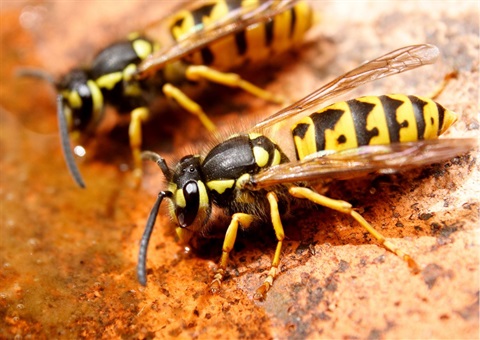
We need your help to reduce the impact of European Wasps in Murrindindi Shire! By trapping just one Queen Wasp, you could stop thousands of 'worker wasps' causing a nuisance at barbeques, cafes and while dining outdoors – and it'll help reduce the negative impact these pests have on our environment.
Murrindindi Shire Council is urging everyone to join in stopping the spread of European Wasps. You can make your own Queen wasp trap with a few standard household items like an empty milk or juice bottle, a wooden skewer and a piece of fruit. You can view a short video on how to make a wasp trap and find an information sheet here - or give us a call and we will send an information sheet to you.
It is important to check your trap regularly and identify what you've caught. We don't want native wasps or bees getting caught in traps. Queen European Wasps can be identified by their bright yellow and black stripe bandings and are often found hovering near buildings, plants and wood or mulch piles. They are much larger than native wasps, bees and even European 'worker' wasps and fly much slower.
Council's Environment Portfolio Councillor Karine Haslam said European Wasps pose a safety risk to residents and pets due to their aggressive behavior.
'They spend the majority of their time foraging for food and are particularly attracted to the food and beverages we enjoy, including meats and juices. They also like pet food – which poses a real danger to our furry friends.
'In addition to these risks, European Wasps can have significant negative impacts on our environment. They compete with and prey on native insects, which affects the biodiversity of our region. They can also damage horticultural crops like grapes and stone fruits, which impacts our commercial industries and home growers.
'In their natural European habitat, entire wasp colonies die off during their much colder winters, leaving just the Queen alive to breed once the weather warms up again. In Australia, we experience relatively milder temperatures during winter. And in some cases, this allows whole wasp colonies to survive the winter, when normally only the Queen wasp would', Cr Haslam said.
'That's why it is so important to trap and destroy Queen wasps early, before they get a chance to breed. We're calling on everyone who can help out to learn how to safely trap Queen wasps so we can do our bit in managing this pest', Cr Haslam added.






